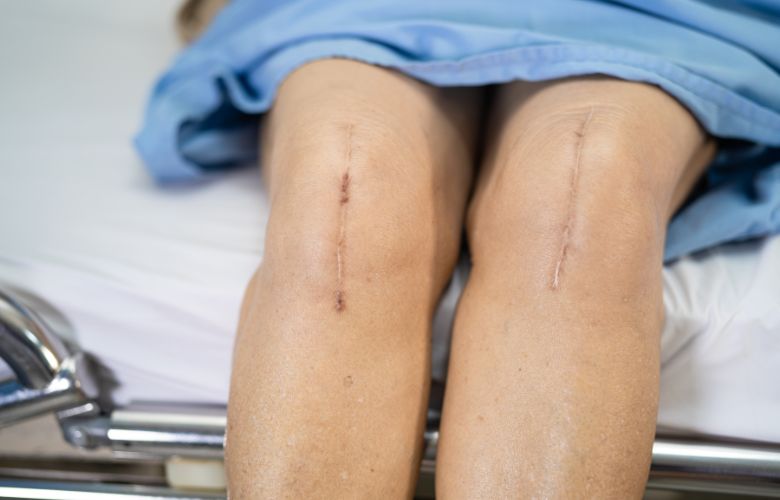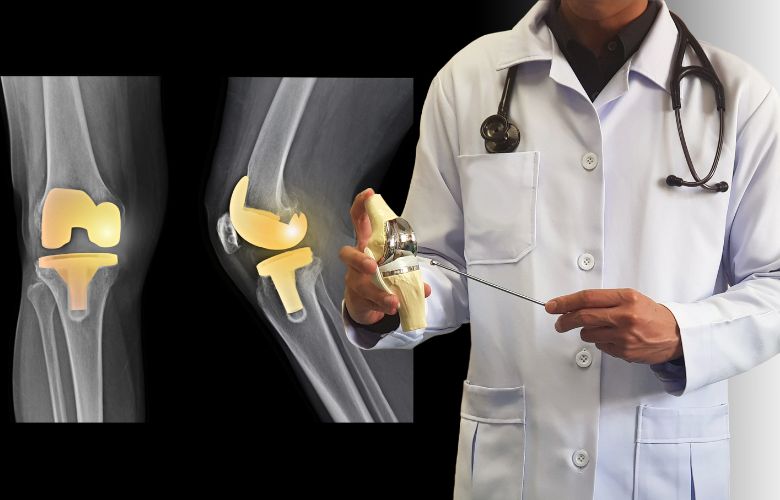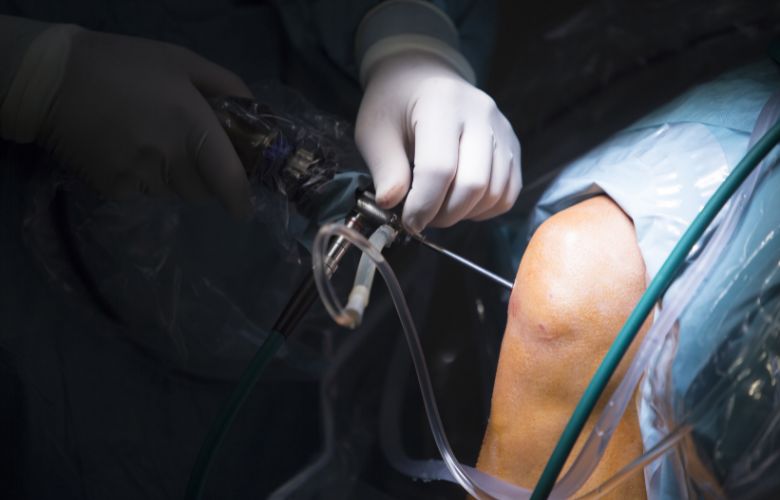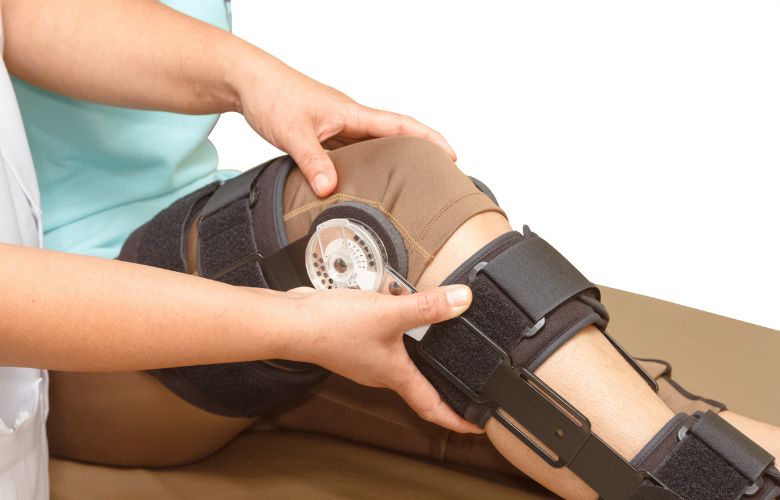Knee replacement surgery is also called arthroplasty. This surgery is designed to help relieve the pain in the knee, as well as restore function in knee joints. This procedure will involve cutting the damaged bone and cartilage from the shinbone, kneecap, and thighbone, and then using an artificial joint to replace it. This joint is made out of high-grade plastics, metal alloys and polymers.
These kinds of surgeries require expert examination first. Whether you need to have a knee replacement surgery or a hip surgery, only an orthopedic surgeon can tell you that after an examination. If that is what you are interested in, you can check out the knee and hip replacement surgery for more information.
Make sure to talk to your doctor to find out more about the surgery
There are different knee replacement surgery techniques and prosthetics that your doctor can choose from. He/she/they will make this decision taking into consideration your weight, age, activity level, knee shape and size, and the overall health.
» Must Like: What To Do Before And After Your Knee Surgery
Types Of Knee Replacement Surgery

A broken or worn-out knee joint is replaced with an artificial joint composed of metal, plastic, or ceramic components during knee replacement surgery, commonly referred to as knee arthroplasty. The various forms of knee replacement surgery each have their own benefits and drawbacks. The following are some of the most popular types of knee replacement surgery:
- Total Knee Replacement (TKR): The most typical kind of knee replacement surgery is this one. The whole knee joint is replaced with an artificial joint during a TKR operation. The prosthetic joint is attached to the remaining bone using cement or a specific substance that promotes bone development after the damaged cartilage and bone have been removed. Patients with severe arthritis or other degenerative disorders who have not responded to non-surgical therapies are frequently advised to undergo TKR.
- Partial Knee Replacement (PKR): Only the damaged area of the knee joint is replaced with a prosthetic joint during a PKR operation. Patients who only have damage to one area of the knee joint are frequently advised to undergo this less invasive technique rather than TKR. Although PKR can hasten rehabilitation and provide the knee with a more natural feel, it might not be suitable for all patients.
- Bilateral Knee Replacement: Sometimes it’s necessary to replace both knees. It is possible to do bilateral knee replacement surgery as two distinct surgeries or as one treatment. Whether to operate on both knees at once will be determined by the patient’s general health and the seriousness of their knee issues.
- Revision Knee Replacement: In order to replace an artificial knee joint that has worn out, gotten loose, or developed an infection, revision knee replacement surgery is carried out. This procedure is more complicated than a first-time knee replacement and needs specific tools and knowledge.
The extent of the patient’s knee issues, their general health, and their personal preferences will all play a role in the sort of knee replacement surgery that is advised for them. The ideal course of therapy can be decided upon in consultation with an orthopedic physician.
Why Do I Need Knee Replacement Surgery?

There are a number of causes for someone to require knee replacement surgery. Arthritis is one of the most prevalent causes. The cartilage in the knee joint degenerates over time as a result of arthritis, resulting in pain, stiffness, and swelling. When arthritis is severe, it may be impossible or very difficult to walk or carry out other everyday tasks.
Injuries or damage to the knee joint and osteonecrosis, in which the bone in the knee joint dies from a lack of blood flow, are other disorders that may necessitate knee replacement surgery. In addition, a failed knee operation or an infected knee joint may necessitate knee replacement surgery.
A doctor would often attempt alternative therapies first, such as physical therapy, pain management, and lifestyle changes, before proposing knee replacement surgery. Surgery can be required if these therapies fail to relieve symptoms or if the knee joint has sustained significant damage.
During a knee replacement procedure, the damaged knee joint elements are removed and swapped out for an artificial joint composed of ceramic, metal, or plastic materials. Patients may walk more freely and pleasantly thanks to the artificial joint, which is made to move and function like a normal knee joint.
Although knee replacement surgery is often regarded as a safe and successful treatment, there are certain hazards involved, including the possibility of infection, bleeding, and blood clots. Depending on the patient and the procedure type, recovering following a knee replacement might take several weeks or months. Physical therapy is frequently used by patients to help the knee joint restore strength and range of motion.
What Are The Risks?

As with any other operation, knee replacement will have some risks as well. Most people who go through knee replacement surgery do not experience any serious complications, but that does not mean that they are not possible.
If you experience one of these after the surgery, make sure to contact your doctor:
- Reddened, hard, hot or painful areas in your legs in the first couple of weeks after the surgery. While you might experience some bruising from the surgery within the normal, this could also mean that you are experiencing DVT (deep vein thrombosis).
- Breathlessness or chest pains are quite rare, but if you are experiencing a blood clot in your lungs, then you will need urgent treatment.
On the other hand, you could have a reaction to anesthesia. While anesthesia is considered to be safe, they do care for some minor risks, and often temporary. Some side effects could include confusion and sickness. If you are still worried about anesthesia, you can talk to your anaesthetist or surgeon for more information
Checkout: Best Advice From Orthopaedic Medicine For Your Joints
How Do I Prepare For Surgery

Before you go through with the surgery, your doctor should tell you everything you need to know about the preparation. However, if you are interested, here is a simple overview of what you should know before you go under the knife and what the preparation will probably look like. An easier and more successful recovery can be achieved by preparing for knee replacement surgery. The following advice will help you get ready for knee replacement surgery.
- Get informed: Learn as much as you can about the process and what to anticipate before, during, and following surgery. You can get information from your doctor or surgeon and get any questions you may have answered.
- Meet with your healthcare team: Make an appointment with your surgeon, primary care physician, and any other medical professionals who will be assisting in your treatment. They can give you advice on how to be ready for surgery and can help you understand what to anticipate.
- Manage your medications: All medications you are taking, including prescription, over-the-counter, and dietary supplements, should be disclosed to your healthcare provider. They could advise making adjustments to your medication schedule both before and after surgery.
- Prepare your home: Make sure your house is prepared for your arrival after hospitalization. To make it simpler to move about, this can entail adding handrails, removing barriers, and rearrangement of furniture.
- Arrange for help: After surgery, you’ll probably require assistance with daily chores like cooking, cleaning, and transportation. Make arrangements for a relative, friend, or carer to help you.
- Get in shape: Before surgery, your surgeon could suggest workouts to strengthen your knee and increase your general fitness. Your ability to recuperate faster can be improved by sticking to an exercise regimen.
- Plan for your hospital stay: Prepare a bag with any necessary prescriptions, comfortable clothing, and toiletries for your hospital stay. Also, you might wish to pack some entertainment in the form of books or other goods.
- Follow pre-surgery instructions: Your surgeon may give you particular directions to follow before surgery, such as avoiding consuming any food or liquids for a predetermined amount of time. To reduce the risk of problems following surgery, it is crucial to strictly adhere to these guidelines.
By following these tips, you can help prepare yourself for knee replacement surgery and improve your chances of a successful recovery.
Prepare For The Recovery

Most of the talk of preparation will include what to expect during the recovery. For a couple of weeks after the procedure you will need to use a walker or crutches. So, it is important that you actually arrange that before the surgery. You will also have to get a ride home from the hospital, including help with everyday tasks, such as bathing, doing the laundry, cooking, and so on.
If you live alone, it is important that you have somebody to come and help you until you are completely recovered. If you do not have anyone who could do that, your surgeon might suggest that you hire a temporary caretaker.
Some Tips To Follow For Quick Recovery

- Make sure that your living space is on one floor because you should avoid climbing stairs.
- Secure the handrails in your house.
- Install safety bars or secure handrails in the shower/bath.
- Get a chair that is stable and has a firm seat cushion and a footstool that will elevate your leg.
- Get a similar chair for your shower.
- Remove any loose cords and rugs in your house.
- Arrange for a toilet-seat riser with arms.
- You will have to avoid any excessive activities after recovering
If there are any other worries you have, you can talk to your doctor about the knee replacement procedure. There are many things to keep in mind, from the procedure to preparing for the procedure, recovery, and risks. These are all things your doctor will discuss with you before the surgery. However, if you have any insecurities or fears, you should definitely talk to your doctor about all that.
Benefits Of Knee Replacement Surgery

Patients with knee discomfort and limited mobility may benefit greatly from knee replacement surgery since it is a safe and efficient operation. The following are a few advantages of having knee replacement surgery:
- Pain Relief: Knee replacement surgery can dramatically lessen knee pain, allowing patients to get back to their regular activities and live better.
- Improved Mobility: After knee replacement surgery, many patients notice an improvement in their range of motion and mobility. This can make it easier for them to carry out daily duties and engage in physical activities that were previously too challenging.
- Increased Independence: Patients may become more autonomous and rely less on others for assistance with improved mobility and pain relief.
- Better Sleep: Knee pain might make it difficult to fall asleep and keep you awake all night. Those who have had knee replacement surgery could sleep better as a result of less discomfort.
- Improved Mental Health: A person’s mental health may suffer as a result of ongoing pain and limited movement, which can result in sadness and worry. Knee replacement surgery can enhance a patient’s mental health and general well-being by lowering pain and enhancing mobility.
- Long-Term Results: The goal of knee replacement surgery is to permanently alleviate knee discomfort and limited mobility. After surgery, many patients report considerable reductions in pain and mobility that last for at least 10 to 20 years.
- Improved Overall Health: A more active lifestyle can encourage improved mobility and pain relief, which has various advantages for general health and well-being. For instance, a healthy weight may be maintained and cardiovascular health can be improved with more physical exercise.
Final word
For those with persistent knee discomfort and limited mobility, knee replacement surgery offers a secure and efficient treatment. For the greatest outcome, it is crucial to fully inform oneself about the process, be well-prepared, and adhere to the advice of your healthcare team. You’ll have less discomfort, more mobility, and an overall higher standard of living if you do this.
Keep in mind that knee replacement surgery will not last forever, but it is designed to last a long time. This is something your doctor will talk to you about during the consultation. This also depends on the type of replacement surgery that you’ve had, and whether you needed total or partial knee replacement surgery. Talk to your doctor to find out more about the surgery.


